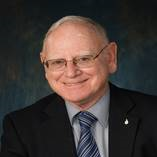Highlight Lecture 2: Sustaining the Space Environment: The State of Space Situational Awareness, Conjunction Warning and Collision
Wednesday 14, 17:45 – 18:45
Location: Ussishkin Auditorium
Sustaining a productive near Earth space environment is critical. As the number of satellites in low and geosynchronous Earth orbits increases, collisions become more likely. Avoiding collisions has been a priority for two decades, but there has not been much progress. Space situational awareness has actually declined in the past few years. The quality of orbit data, particularly debris orbits, is neither sufficient nor timely. Fortunately, collisions are not likely, although the consequences might be severe.
This presentation will assess the capabilities of the world’s space situational resources. One of the most significant impediments is the diversity of conjunction assessment and collision warning among stakeholders. Each must be able to understand and employ data provided by others. International Standards and best practices provide the environment for collaboration and improvement. Verifiable, measureable, and enforceable guidelines, codes of conduct, treaties, and laws are required. Many proposed and implemented thus far do not satisfy these criteria.
The first segment of this lecture will present all capabilities accessible to international stakeholders. These capabilities are much more than locations and fields of view or fields of regard.
The second segment will examine the capabilities to conduct actionable surveillance. Surveillance is perceiving events that matter, not looking everywhere for anything. We must consider relationships among assets to be protected, threats to those assets, and actions that might mitigate those threats.
The third segment will expose for the non-expert major approaches to conjunction assessment and collision avoidance as well as the uncertainties and estimated effectiveness. Only satellite owners and operators can judge whether to suffer a small, quantified risk or maneuver at the risk of revenue or important data. The tradeoffs will be presented for realistic situations.
Finally, the possibility of guidelines, codes of conduct, treaties, and laws to facilitate sustainability will be discussed.



























